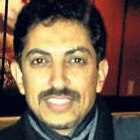13 Feb 2012 | Digital Freedom, Index Index, Middle East and North Africa, minipost
Internet censorship has dramatically increased in Iran over the last week. On 7 February, internet users in Iran began reporting an increase in the blocking and filtering of certain kinds of internet traffic in the country. Many users complained of not being able to access HTTPS websites, the secure and encrypted version of HTTP protocol. Many banks, Google services, Twitter, Facebook, and Microsoft Hotmail use HTTPS to protect private data. Though there have been no official announcements regarding the changes, it is widely believed to be the first step towards a Halal internet.
13 Feb 2012 | Index Index, minipost
A second cleric is suing Irish public service broadcaster RTE for libel, after they accused him of child abuse. Former Archbishop Richard Burke claims he was named in the same Prime Time Investigates programme as Father Kevin Reynolds, whom RTÉ alleged had fathered a child while a missionary in Kenya. Burke admitted to having a sexual relationship with a woman whilst working in Nigeria, but claimed she was an adult at the time and that the relationship was consensual. ‘Mission to Prey’ claimed that the cleric had abused a minor.
13 Feb 2012 | Bahrain Letters, Middle East and North Africa
 Prominent Bahraini human rights defender Abdulhadi Al-Khawaja has been serving a life sentence since April 2011 for his involvement in anti-government protests last year. Al-Khawaja, who is also a Danish citizen, recently wrote a letter from prison to the Minister of Foreign Affairs to push for his release
Prominent Bahraini human rights defender Abdulhadi Al-Khawaja has been serving a life sentence since April 2011 for his involvement in anti-government protests last year. Al-Khawaja, who is also a Danish citizen, recently wrote a letter from prison to the Minister of Foreign Affairs to push for his release
(more…)
13 Feb 2012 | Leveson Inquiry
The Sun’s associate editor Trevor Kavanagh has launched a stirring attack on the police in this morning’s paper. When Kavanagh lays out of what happened over the weekend, it’s hard not to agree that this looks like an assault on the press by an overzealous police force. While there is a criminal investigation ongoing and the police will need to talk to people, dawn raids at the weekend seem excessive and intimidatory.
Brian Cathcart suggests:
“As for the [Metropolitan Police], it is doing its job. It may well be doing it with a special zeal, in response to criticisms about a previous absence of zeal, but we can hardly complain about that either. “
I think I can complain, if I’m honest. The Met’s embarrassment over past unwillingness to investigate phonehacking does not give it licence to act disproportionately now, and journalists being roused from their beds by police is a bit too close for comfort to the kind of events we at Index cover and campaign on in the less free world. Moreover, one can’t help feel this is all part of an attempt to show willing ahead of the Leveson Inquiry’s scrutiny of the relations between police and the press, due to begin at the end of February.
Kavanagh correctly points out that “illegal” practices take part across the media. As Index noted in our submission to the Leveson Inquiry, these practices can be justified if there is a public interest and a clear line of accountability within the publication.
He then notes that the UK rates below Slovakia, Poland and Estonia in press freedom. The post-Soviet countries the UK is behind are not exactly Belarus or Turkmenistan, or indeed Russia, but Kavanagh is technically correct on this. The rating comes from Reporters Without Borders’ (RSF) annual Press Freedom Index. The RSF report comments:
Against the extraordinary backdrop of the News of the World affair, the United Kingdom (28th) caused concern with its approach to the protection of privacy and its response to the London riots. Despite universal condemnation, the UK also clings to a surreal law that allows the entire world to come and sue news media before its courts.
The “surreal law” referred to is English defamation law, while the “approach to privacy” is the fondness for the judicial injunction displayed by those who seek to stifle stories about them, not, as one might read it, the tendency of certain gentlemen of the press to listen to people’s voice messages.
While it may be tempting to aim a dismissive “calm down, dear” at Kavanagh, we should not pretend that there are no press freedom issues at stake in this country.

